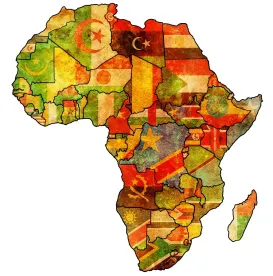Amid the COVID-19 pandemic, the African continent has seen challenges like other parts of the world that are affecting trade. This includes a moving effective date for the African Continental Free Trade Agreement (AfCFTA), which slid from July 1 to possibly January 1, 2021, to avoid distracting African leaders as they respond to the pandemic. Nevertheless, there is a push to have the continent move forward with the implementation of the AfCFTA, to spur further collaboration and intra-Africa trade, which, in turn, could help the continent better weather economic downturns related to the global pandemic. The AfCFTA, once implemented, will create a US$3.4 trillion economic bloc, which would provide Africa with increased leverage in the global economy.
Phase II negotiations of the AfCFTA have also been delayed. If Africa truly desires increased US investments, there needs to be more proactive and expansive action on addressing corruption at all levels in the second phase of the AfCFTA talks. This should include expanding the traditional focus on public-sector corruption to providing incentives that dissuade private-sector corruption in the Phase II negotiations. Corruption is widely regarded as corrosive to trade facilitation, particularly when bribes are sought throughout the transiting of goods within countries and as they cross borders. Moreover, US companies examine corruption issues and related costs in their risk assessments when considering whether to enter African markets.
Recent developments in the World Trade Organization (WTO) are of significance for AfCFTA. There is a process whereby regional trade agreements can be approved by the WTO, which is a necessary first step.
However, broader changes in the WTO are important to assess. As of this writing, the campaign for the next Directorate-General (DG) of the WTO is down to two women, including Ngozi Okonjo-Iweala, Nigeria’s former Minister of Finance and former number two at the World Bank. New leadership of the WTO will hopefully provide a catalyst for much needed reform in areas like dispute settlement, transparency, and a more active work agenda, involving a possible new round of multilateral trade negotiations. The AfCFTA countries should prepare their strategy now for actively participating in the reform process. It is essential to build upon AfCFTA to expand market access throughout Africa, and strengthen rules on intellectual property and investment.
A new focus on Africa in the WTO will present an opportunity for AfCFTA members to build upon the strengths of their agreement in a meaningful fashion.
Earlier this year, the US announced bilateral trade negotiations with Kenya toward a possible free trade agreement (FTA). These talks will help better inform African countries of US companies’ concerns in sub-Saharan Africa. For example, the US-Kenya trade negotiation objectives, which solicited input from US stakeholders, includes a chapter on anti-corruption. (Among other things, the Office of the US Trade Representative is to seek to “Secure provisions committing Kenya to criminalize government corruption, to take steps to discourage corruption, and to provide adequate penalties and enforcement tools in the event of prosecution of persons suspected of engaging in corrupt activities.”) US companies are also looking for a level playing field.
Unlike Chinese and Russian counterparts, US investors are held to enforceable US laws when operating abroad. This includes the Foreign Corrupt Practices Act (CPA) of 1977, which prohibits US citizens and entities from bribing foreign government officials overseas to benefit their business interests. AfCFTA negotiators should examine the FCPA and the United Kingdom’s Bribery Act 2020 and, at a minimum, include provisions in a Phase II agreement that raise the bar for all foreign investors that operate on the continent with respect to anti-corruption, including Chinese and other investors not beholden to the UK or US anti-bribery laws. Moreover, the AfCFTA could further move the needle on anti-corruption by enacting tools that provide enforceable provisions that address private sector corruption.
A FTA between Kenya and the US will set a precedent for other AfCFTA members, who can ultimately engage with the US to improve two-way trade.
According to reports, trade negotiators from Washington and Nairobi exchanged texts this month after initiating negotiations in July. The expiration of Trade Promotion Authority (TPA) by the summer of 2021 is another complicating factor. Under TPA, if it is not renewed, the countries must complete the US-Kenya FTA by April 1, 2021, since the US president must notify Congress 90 days before signing the agreement. TPA expires at the end of June 2021.
Another issue is Kenya’s membership in the East Africa Community (EAC), as well as AfCFTA, which will likely affect talks with the US. While AfCFTA does not prohibit members from negotiating with third parties, it requires that any concessions agree to, in such talks, be extended to other AfCFTA member countries on a reciprocal basis.
The future is bright for expanding trade in Africa. With new leadership in the WTO, and an FTA with the first sub-Saharan country, Africa is poised to bounce back from COVID-19 and enjoy the benefits of growing world trade.





 />i
/>i

